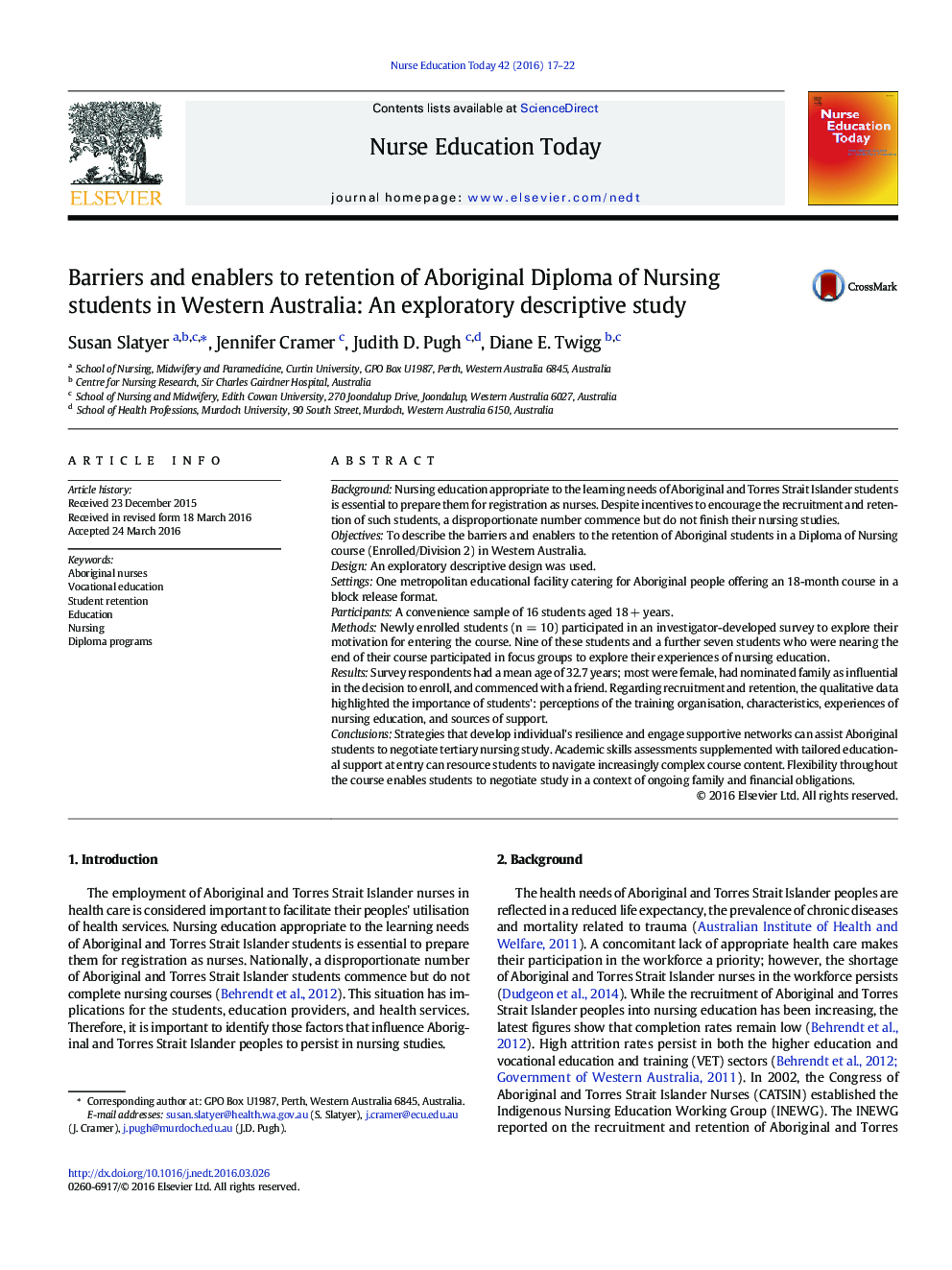| Article ID | Journal | Published Year | Pages | File Type |
|---|---|---|---|---|
| 367829 | Nurse Education Today | 2016 | 6 Pages |
•Aboriginal student vulnerabilities and stressors impact their course success.•Students with resilience, determination, and family support tend to persist.•Culturally safe, tailored education can be a ‘bridge’ to life-long learning.•Organisational support must foster problem solving, flexibility, and peer cohesion.
BackgroundNursing education appropriate to the learning needs of Aboriginal and Torres Strait Islander students is essential to prepare them for registration as nurses. Despite incentives to encourage the recruitment and retention of such students, a disproportionate number commence but do not finish their nursing studies.ObjectivesTo describe the barriers and enablers to the retention of Aboriginal students in a Diploma of Nursing course (Enrolled/Division 2) in Western Australia.DesignAn exploratory descriptive design was used.SettingsOne metropolitan educational facility catering for Aboriginal people offering an 18-month course in a block release format.ParticipantsA convenience sample of 16 students aged 18 + years.MethodsNewly enrolled students (n = 10) participated in an investigator-developed survey to explore their motivation for entering the course. Nine of these students and a further seven students who were nearing the end of their course participated in focus groups to explore their experiences of nursing education.ResultsSurvey respondents had a mean age of 32.7 years; most were female, had nominated family as influential in the decision to enroll, and commenced with a friend. Regarding recruitment and retention, the qualitative data highlighted the importance of students': perceptions of the training organisation, characteristics, experiences of nursing education, and sources of support.ConclusionsStrategies that develop individual's resilience and engage supportive networks can assist Aboriginal students to negotiate tertiary nursing study. Academic skills assessments supplemented with tailored educational support at entry can resource students to navigate increasingly complex course content. Flexibility throughout the course enables students to negotiate study in a context of ongoing family and financial obligations.
